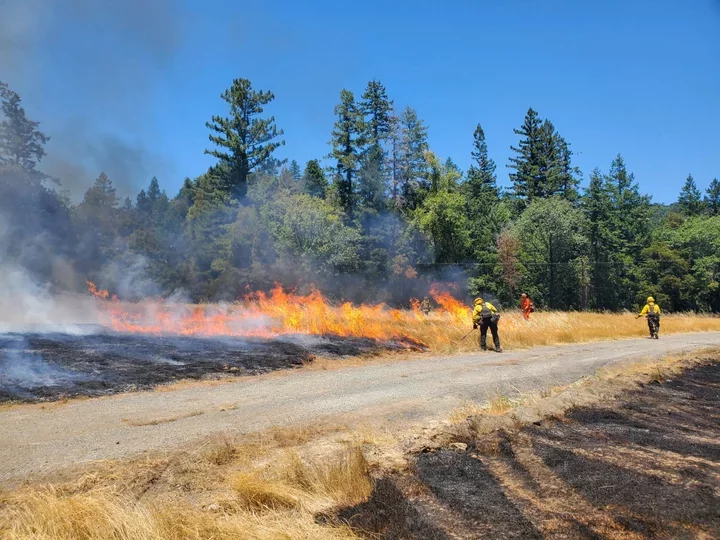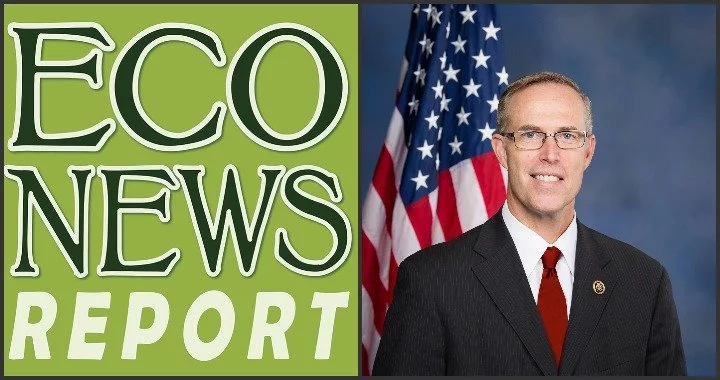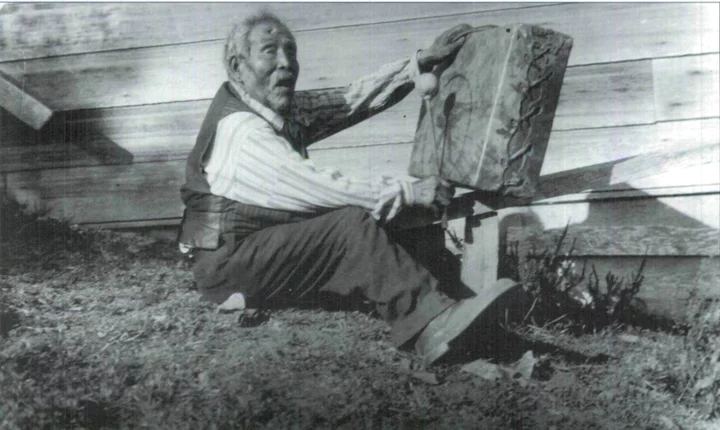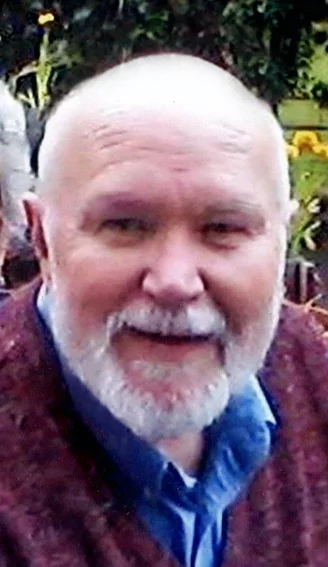PASTOR BETHANY: Jonah, Part III — Or, Look Toward the Temple
Bethany Cseh / Sunday, Oct. 20, 2024 @ 7 a.m. / Faith-y
PREVIOUSLY:
- PASTOR BETHANY: Jonah Escaped the Whale, But the Point of the Story is What He Escaped After That
- PASTOR BETHANY: Jonah, Part II — Or, Denial is the Reason We Sink to the Bottom
Biblical characters are often seen as two-dimensional, lacking background or nuance. But Jonah had a story. Knowing a person’s history and hardship has the potential to soften our own hearts and relate to that person differently, bringing empathy.
We don’t know much about Jonah, about his life circumstances or upbringing. We don’t know what kind of loss or joy he experienced. Based on the culture and history, with the Assyrians’ bloodthirsty oppressive violence over Israel, we can assume his life wasn’t easy. Human psychology tells us Jonah’s upbringing came with intergenerational trauma and difficulty where surviving is carried within a person’s DNA. When you aren’t sure how to make ends meet or how to feed your kids, when you’re called off to war, or when you hear that the next city over has been burned to the ground, there are certain traumas that become foundational to how a person navigates through their life. (The comparison of this ancient story with Israel and Gaza today is not lost on me. Violence begets violence as we watch our paradoxical bloodsoaked tax dollars protect and kill and aid all at once.) These ancient stories have much to teach us if we’re willing to allow them. For Jonah, his upbringing was rooted in generational traumas and daily uncertainties, and I’m sure this shaped how he saw the world. Same for us, right? Our own difficult and traumatic life experiences shape the way we view the world and can make us question God. It’s really hard to respond to life with joy when loss and uncertainty has paved the way into today. And if that’s the case for you and me, I can’t begin to imagine how it was for Jonah.
But whenever Jonah needed grounding, he could find it in the Temple.
The Jerusalem Temple was thought to house the presence of God. Everything a Jewish person did was rooted in the admiration of and distinctness of Temple life. So, whenever Israel was subjected to foreign oppressive powers they would turn their focus towards the Temple, which reoriented their perspective in whatever storm they faced.
The Temple was also a constant, physical reminder of God’s unbreakable covenantal relationship. Covenants weren’t something God made up. It was an ancient practice tribes and peoples used to signify a mutually beneficial promise made between them. For example, the son and daughter from two different families of similar wealth and power would marry to benefit both. Or two tribes would make a promise to have each other’s backs, or not go to war against each other.
To make this promise the leaders would cut a covenant. They would take an animal, kill it, cut it in two, place each half just a part from the other, and then walk through the two halves signifying the promise made to each other was for life. If either party broke the covenant they were essentially saying, “May it be to me as it was to this animal …Till death do us part.”
If I break this promise, you can walk through my blood.
In Genesis 15, God used this ancient, barbaric human-made and understood promise and pledged Godself to a people, cutting a covenant with Abraham, knowing full well that human beings could never uphold the promise of relational fidelity.
Jonah’s prophetic role was to remind Israel they were to be faithful to following the ways of God no matter their circumstances, and I’m sure Jonah took his role very seriously.
So when the word of the Lord came to Jonah to declare second chances over Israel’s sworn enemy, over the people who may have murdered and mutilated Jonah’s own family members and demolished his countrymen over the past hundred or more years, of course Jonah wasn’t super-stoked. This wasn’t just the graciousness of God. This seemed like a breach in covenantal fidelity and promise.
It would have felt like betrayal, abandonment, treason.
I bet everything Jonah thought he knew about God, everything he’d worked for and preached about began to unravel. His faith, his theology, his religion fell apart like a house of cards, so what was the point of living when everything you’ve ever known now seemed like a lie? Of course you would run away and get as far as you could from where your life began to crumble.
He boarded a ship for the farthest place he could think of and while on this ship, a fierce storm kicked up and began tearing the ship apart, threatening to sink it. While the sailors did their best to survive by throwing their livelihood overboard and crying out to their gods — screamed prayers carried away by the wind and rain — Jonah headed down below deck to sleep it off.
When grief hits you hard because everything you thought you knew about your own life expectations or how your life was supposed to turn out falls apart like a house of cards, it’s really hard to function.
Jonah avoided reality, numbed the present, and sunk below the ship, because grief will do that to you.
Once the sailors discovered that the storm was from Jonah’s making and after deliberation, they woefully decided to throw him overboard.
And this is where the big fish comes into the story. Throughout chapter two of Jonah, we don’t read about the details of his experience in the belly of this big fish. We read about his prayer life.
Jonah had no idea how long he would be in this situation or if he would survive it. We know it would be three days but all he could probably see was a slow death and the torturous existence of a claustrophobic grave. But in the middle of despair, he fixed his perspective on what he knew to be true. “I remembered you,” Jonah said about God. I remembered your faithfulness. I remembered your love.
Jonah prayed, I remembered you. He didn’t know what the next moment would bring him but he did know that when he walked through the valley of the shadow of death, God wasn’t waiting for him on the other side, beckoning him closer. God was with him in the valley, in the grave, in the depths of such unknown and impossible places.
Jonah remembered and fixed his attention on the holy Temple, knowing he wasn’t alone.
I know many of us are walking through a valley of the shadow of death and it feels like we’re alone. This valley might be of your own making, like it was for Jonah. It might be from someone else’s making. It might be from nothing you can actually point towards and blame — it’s just hard right now. Some of you might feel like Jonah, totally irritated and frustrated that life isn’t turning out the way you had imagined it because you thought you’d be married by now, or that your marriage would be healthy by now, or your kids would be kinder by now, or you would have the right career by now. And to walk forward when things are such a mess feels like an impossible task, like maybe you’ve been abandoned.
Some of you might feel like you’re in the belly of the grave, barely surviving or holding on, feeling forgotten by God. There is a level of loss and grief that has buried you and it’s been way longer than three days. You’ve lost the ability to sing, pray, or trust anything or anyone.
So, look towards the Temple.
Take a deep breath and focus your attention inside. You are created in the image of God and you have everything you need inside you. You can feel it in your gut. You were designed to access the goodness and love of God, and you keep looking everywhere else, hoping some wisdom is going to fall from the sky when you were already created with everything you need. You are loved. You are whole and complete. Scripture says your body is the temple of the Holy Spirit. What a holy invitation of spiritual depth and wonder! God is with you in this hardship!
These ancient stories eventually tell how Jesus Christ brought forth a new covenant through his death because blood was required. The original covenant was broken again and again, so God slipped into skin to show a powerful way of sacrificial love (Google Girard’s “Scapegoat Theory.”) Humans became the Temple that houses God’s presence, which bears witness to such love and grace to every person, especially our enemies. So when life feels impossible, when you feel like you’re drowning in a watery grave without any knowledge of how long you might be buried in the deep, know you are not alone. Look towards the Temple, towards Love, within you.
And I believe the power that raised Christ from the dead can raise you from your watery grave as well.
So may we know we are loved and may this Love empower us to bravely love any bloodthirsty enemy around us. And may we listen to each other’s stories, building empathy as we see the image of God within each other.
###
Bethany Cseh is a pastor at Arcata United Methodist Church and Catalyst Church. Follow her on Instagram.
BOOKED
Yesterday: 8 felonies, 13 misdemeanors, 0 infractions
JUDGED
Humboldt County Superior Court Calendar: Yesterday
CHP REPORTS
Salmon River Rd / Sr96 (YK office): Car Fire
ELSEWHERE
RHBB: Day Five on the Eel River: Sheriff Calls Recovery a ‘Little Win’ in a ‘Terrible Situation’
Times-Standard : Few large-animal vets juggle after-hours emergency care
Times-Standard : Civic calendar | Blue Lake to discuss water, sewer rate increases
RHBB: Juan Heredia Assists in Ongoing Eel River Search for Missing Covelo Woman
(UPDATE: OPEN) Highway 101 Closed to Northbound Traffic at Eel River Bridge Near Rio Dell Due to Accident
Isabella Vanderheiden / Saturday, Oct. 19, 2024 @ 2:09 p.m. / Traffic
###
UPDATE 2:35 p.m.: Both lanes are now open, according to Caltrans.
###
Original post: A traffic accident has shut down northbound traffic on Highway 101 at the Eel River Bridge just north of Rio Dell. The California Highway Patrol dispatch notes a four-vehicle traffic accident at that location just after 1:10 p.m.
Caltrans District 1 says the road should be cleared by 5 p.m. If you don’t see a big “STOP” sign at the center of the map above, traffic is likely flowing again. We’ll update this post when we know more.
GOOD FIRE: CalFire Is Gonna Torch 300 Acres Near Ettersburg Over the Next Few Days to Restore Oak Woodland Habitat
LoCO Staff / Saturday, Oct. 19, 2024 @ 11:10 a.m. / Fire , Non-Emergencies
File photo via CalFire.
###
TUESDAY UPDATE: CalFire has extended the controlled burn to Wednesday, Oct. 23 “due to weather and fuel conditions” in the area.
###
Original post:
Press release from the CalFire Humboldt-Del Norte Unit:
What: Professionally controlled prescribed burn planned for the restoration of oak woodland habitat and reducing wildfire hazardous fuels. The burn is planned for approximately 300 acres, as conditions allow.
When: The prescribed burn is planned for 3 consecutive days, October 20-21-22, 2024.
Where: Ettersburg Ranch Rd and Wilder Ridge Road in Ettersburg.
Why: This burn is part of a long-term habitat management plan and is also intended to reduce hazardous wildland fuel loading. The treatment will help to enhance the health of the native plant communities, aid in the control of non-native plant species, and protect and enhance habitat for animal species dependent on the oak woodland ecosystem.
Who: CAL FIRE. During these prescribed fire operations, residents may see an increase in fire suppression resource traffic, smoke will be visible and traffic control may be in place. Please be cautious for your safety as well as those working on prescribed burns.
Learn more how you can prepare for wildfire by visiting: www.ReadyForWildfire.org. For more information, please contact the CAL FIRE Humboldt – Del Norte Unit Public Information Officer line at: (707) 726-1285.
THE ECONEWS REPORT: Pre-Election Jitters, With Rep. Jared Huffman
The EcoNews Report / Saturday, Oct. 19, 2024 @ 10 a.m. / Environment
Congressman Huffman is back on the show. With a major election in just a few days, what is the Congressman up to? When he isn’t calling voters in swing states — has anyone in Nevada received a call from a “Jared from California”? — he is sponsoring new legislation to protect birds and whales.
The Congressman also has new bipartisan fire resiliency legislation that seeks to make our state safer without sacrificing environmental protections along the way.
HUMBOLDT HISTORY: ‘Too Bad White Man Find This Place.’ Or, Requa at the Beginning of the Last Century
Ruth Kellett Roberts / Saturday, Oct. 19, 2024 @ 7:30 a.m. / History
During the years that Roberts spent in Requa, a brush dance was held each year after the commercial fishing season closed. All photos by Ruth K. Roberts, via the Humboldt Historian.
###
FROM THE EDITOR OF THE HUMBOLDT HISTORIAN: This essay was given to the Historian by Peter Palmquist. It represents the fourth selection from his unpublished manuscript White On Red: Fifty Writings about Native Americans from the White Popular Press, 1850-1950 to appear in the Humboldt Historian.
Palmquist states:
Ruth Kellett Roberts was a society woman from Piedmont, California, who took a special interest in the Indians of the Klamath River area. She regularly arranged for young Yurok girls to live with white families in the San Francisco Bay region and was a strong advocate for Native American voting rights. Beginning about 1915, Roberts spent a total of seventeen summers at Requa, Del Norte County. She was an avid amateur photographer, and many of her photographs are among the best taken of Sa-atch culture. In this essay, which is reprinted from the March 1934 issue of Pacific Sportsman, Roberts talks about the history of Requa and its Native people.
###
Seventeen years ago I stood one day with an old Yurok Indian woman in the Indian village of “Rekwoi” at the mouth of the Klamath River. The name Yurok has been incorrectly applied to the branch of Algonquin Indians living from Weitchpec to Requa. “Sa-atch” is the Indian’s own name for this group. “Yurok” is the Karok (Orleans Indians) name for this group.
The glorious stream, the Klamath River, has its source in Klamath Lakes, Southern Oregon, and flows for approximately two hundred miles through a narrow gorge to the Pacific Ocean, and empties at a point in Del Norte County, California, twenty-two miles south of Crescent City, and seventy miles north of Eureka. The Indians themselves called it “O-meg-waw,” meaning Big River.
The steep slope where we stood above the river had once been a populous Indian community. All that now remained was one old family house, several caved-in sweat-houses, an equally caved-in ceremonial house, graves, and scattered pits overgrown with nettles where houses had once stood. Four Indian families, living in weather-beaten frame houses, were all that remained of the numerous inhabitants of the once thriving village.
We stood for several minutes without speaking, looking across the tidewater lagoon toward the extinct Indian settlement on the opposite hill slope, the site of which was marked only by graves. Above the graves a conical hill, the “Mount Ararat” of Indian legend, stood guard. Suddenly my companion clutched my hand. Quick tears blinded her dim eyes as she exclaimed; “Too bad white man find this place! He never would, if old woman who lived right there hadn’t let fire go out. She made a fog over fire. Hide this place! For long time no one found us! Oh too bad!”
Again there was silence. In my heart I, too, felt it was “Too bad.”
Roberts wrote, “The old town of Requa, clinging to the hillside, with its comfortable inn, church, quaint cabins, and cottages surrounded by gorgeously hued dahlias and sweet peas, seems more like a fishing hamlet in Europe than a California town.”
The first white man to look out across the river and ocean from this same hillside slopes was “Big John” Turner of the Jedediah S. Smith overland exploration party.
The Smith party, the first white “tourists” to invade this now popular fisherman’s paradise, descended the Trinity and lower Klamath River canyons in 1828 and encamped on a flat on Hunter Creek, at a point somewhere near the junction of the Redwood Highway and the county road into Requa. This junction is one and one-half miles in from the mouth of the river.
In Smith’s diary he states that during the short encampment of his party here, he saw no Indians. An Indian informant, however, related to me the fact that many Indians were hiding in the bushes near Smith’s camp and observed, both day and night, every move made by the explorers.
“Big John” Turner, a man of enormous stature, was evidently the only member of the Smith party to go to the actual mouth of the Klamath River. Smith’s diary does not recount this fact, but the Indians do. They have given me a complete description of Turner and the effect upon the Indians of the sudden appearance of this huge bewhiskered white man, who came alone into the Indian village at Rekwoi and stood quietly looking out across the Klamath River mouth and the Pacific Ocean.
The first impulse of the Indians, I am told, was to kill this intruder.
His huge size and calm fearlessness, however, were so disconcerting to the Indians, that they concluded this stranger must have a “medicine” or “power,” and that it might not be safe to kill him. And so, the first white tourist, who came “just to look around,” “looked,” and returned to camp, quite unconscious of his imminent danger.
The next arrivals at Rekwoi came by boat. In 1850 a small bark, the Laura Virginia, anchored just outside the mouth of the Klamath River. This boat was one of several boats outfitted in San Francisco, carrying miners seeking a water route to the Trinity goldfields.
Maps in use at the time indicated a large navigable stream, identified as Trinity River, emptying into Trinidad Bay. It was believed that this river was a direct water route to the Trinity gold fields.
The Laura Virginia, failing to find this river at Trinidad Bay, sailed on up the coast, and discovering the Klamath River, concluded it must be the sought-after water route. Therefore, some of the miners and their supplies were put on shore at the mouth of the Klamath, where a temporary camp was set up on the north beach.

Yurok woman in front of a traditional plank house, which has been propped up and is probably in disuse.
The dismayed Indians watched the Laura Virginia sail off up the coast and viewed with apprehension the camp preparations of the miners. The intent of these white trespassers was unknown to the Indians, but after observing the unwelcome immigrants for a time, decided they were not hostile, and so indicated the desired trails in order to rid the community of an undesirable foreign element.
The Indians called these new people the “Wa-gay,” because they had sprung up from nowhere, and were “smart.” The Wa-gay, a prehistoric people, were, according to an old Indian legend, the first people to inhabit this region, and “knew everything.”
One inquisitive small boy, “Billie” Brooks, and his sister, bolder than the rest, went down to the camp fires of the miners and were treated to baked potatoes. “God, but they tasted good,” Billie, the oldest surviving Indian living at Rekwoi, said, in recounting the story to me eighty-one years after the incident had transpired.
It was these miners from the Laura Virginia who first followed the course of the Klamath River for about one hundred and fifty miles to the Shasta River and made known the fact that the Klamath did not empty into the ocean at the mouth of the Rogue as all maps up to that time had represented its course, but was a continuation of the stream that was known as the “Klamet” above the Shasta River, and had been frequently visited by trappers and settlers who journeyed between Oregon and the bay region of California.
A Yurok woman smiles while several children enjoy the food at a community celebration.
For a period of years, miners and a few prospective settlers struggled through the lower Klamath River region, but made no settlement near the mouth of the river. The first and only building erected in the Indian village of Rekwoi by a white man was a store built and conducted by a man by the name of Weigle. The building housed the trader’s family, a post office, a general merchandise store, a saloon and a community dance hall. Another man named Tucker succeeded the first occupant and the house, and it became known as “Tucker House.”
The woman-shaped rock at the river mouth became known as “Tucker Rock.”
Several years ago an enterprising young Indian, Hathaway Stevens, acquired the property on which the old house stood, razed it and established himself and family in a modern bungalow. He put in a garden, leveled off a parking place for automobiles and prepared to harvest his share of profit from the ever-increasing tourist crop.
The town of Requa, the Mecca for salmon trollers from July until November, snuggling on the hillside about a mile in from the ocean, had a saloon as a nucleus of settlement, and from all reports outrivaled the frontier towns of the movies in local color. The name Requa is the white man’s attempt at the use of the unfamiliar Indian name “Rekwoi,” which in Indian means “river mouth.”
Requa nourished as a prosperous center of business activity and boasted several saloons, two dance halls, two general merchandise stores, a post office, livery stable, cannery and shake mill, until a few years ago when most of the business activity, the fights and the dust of the tourist moved three miles out to the new town of Klamath, near the Douglas Memorial Bridge on the Redwood Highway. The old town of Requa, clinging to the hillside, with its comfortable inn, church, quaint cabins, and cottages surrounded by gorgeously hued dahlias and sweet peas, seems more like a fishing hamlet in Europe than a California town.
Sandy Bar Bob, a Karuk man, plays a square drum typical of the area.
Fishing has always been the consuming occupation of this community, from the days of the unmolested aborigines who fished with every manner of net, spear, bone hook, and trap, to the familiar commercial net fisherman, and the tourist sportsman with troll and casting rod.
Commercial fishing was introduced on the Klamath River by Mr. A. Bomhoff in 1887, who by agreement with the soldiers in charge of Indian affairs for this district, built a salmon cannery at the present site of the Klamath River Pacers’ Association plant, with the understanding that only Indians be employed as fishermen and for unskilled labor. It was because of this agreement that the Indians and the Hoopa Indian agent permitted the cannery to be built on Indian land. Some of the Indians who started work in the cannery in 1887 were in 1933 employed there, and opening day each season found them knife in hand in their accustomed places ready for work. Commercial fishing was made illegal by action of the state legislature of 1933 and the law became effective January 1, 1934.
During its six weeks of operation the commercial cannery was the center of community activity. Indian families came down from “up river” in dugout-canoes, skiffs, and motor boats and established themselves for the fishing season in the cannery cabins near the plant. With their arrival the sleeping hillside slope became alive with babies, dogs, white washings and men busy at their net racks putting their nets in order.
Young and old Indians of both sexes fished and worked in the cannery. Gossiping old women, too old to work, took care of the babies and busied themselves gathering and smoking salmon heads and tails, salvaged from the cannery, for winter food.
In the evening, Indians, local whites and tourists gathered on the cannery platform or perched on points of vantage above the river, from which a good view could be had, and watched the fishermen “lay out.”
At the signal whistle from the cannery the fishing boats pulled out from both shores of the lagoon, the gill-nets stretching out behind with the “corks” bobbing on the surface as the boats raced toward the center of the stream. It was a thrilling sight.
Gill-net fishing on the Klamath River in recent years was legally confined to the two-mile stretch between the mouth and Douglas Memorial Bridge, and was done only at night, six nights a week, over an actual period of about six weeks.
At the end of the commercial season, September 6th, the Indians had a grand finale in the way of a “brush dance,” a “white man’s dance,” and a general holiday from all restraint. They “settled up,” bought their winter food supplies and clothing, and returned to their homes up the river. Here they harvested their beans, potatoes and corn, gathered acorns, went hunting, and dried salmon.
To the tourist salmon means sport fishing, to the Indian his staff of life …
Wildflowers bloom along a path that winds across the gentle hillside.
###
The story above is from the Summer 1999 issue of the Humboldt Historian, a journal of the Humboldt County Historical Society. It is reprinted here with permission. The Humboldt County Historical Society is a nonprofit organization devoted to archiving, preserving and sharing Humboldt County’s rich history. You can become a member and receive a year’s worth of new issues of The Humboldt Historian at this link.
OBITUARY: Jacob Gregory Pauli, 1949-2024
LoCO Staff / Saturday, Oct. 19, 2024 @ 6:56 a.m. / Obits
Jacob Gregory Pauli
July
19,
1949 to October 9, 2024
Born in Los Angeles to parents Jacob and Marguerite (Peters) Pauli. The family relocated to Sunny Brae in Arcata. in 1958. Jake attended Jacoby Creek School and graduated from Arcata High School in 1967.
Jake was a walking automotive encyclopedia. He knew more than most when it came to body style changes or drivetrain options for almost any vehicle manufactured from the 1920s to current. Over his lifetime he had MANY cars and trucks. He favored hot rods and preferred them to sit low and sound good. Most of his working years were spent in the automotive industry. He had long stints at Redwood Marine, Eureka Brake and Automotive, Lithia and North Bay Automotive. Many customers will remember his calm and caring demeanor. He may be remembered most for when he and best friend Bob Hook started and operated The Video Connection in the 1980s. The domes on Myrtle Ave is where many customers became friends.
Jake had the ability to connect with people. Somehow, he found a way to common ground with everyone he encountered. He formed meaningful, lasting relationships with a wide range of individuals. Even in the last few months while in and out of the hospital, he connected with his providers. He always asked about their families and where they were from. He genuinely cared about others and their wellbeing. He had a large circle of friends and kept in touch with dozens on a regular basis. If success is measured by the amount of people who consider you a friend, then he was VERY successful.
Jake enjoyed attending car shows, swap meets, antique stores and drag races. Too many trips to count spent walking fairgrounds and pits taking in the sights and sounds. These getaways usually included some sort of local BBQ joint, or burger stand. These trips will provide memories for those lucky enough to have attended with him. You certainly got an education as he would point out something not so obvious to everyone else. Jake especially liked attending events with Dean Duff. Those two had an inseparable bond since Dean’s employment at the Video Connection.
Above all, Jake most enjoyed spending time with Family. The annual Christmas Eve gathering being the highlight. This tradition started with his parents decades ago. A burnout on the way to get raviolis was a time-honored tradition. He had a special unique bond with each of his grandchildren. When the grandkids were little, they could count on Grandpa having a pocket full of candy to share or a story to tell. They miss him terribly.
Jake was preceded in death by his parents Jacob and Marguerite Pauli. In-laws Dayton and Gayle Titus and nephew Nathan Titus. Also preceding him was friend David Sharp. David passed in the 1970s and Dad annually visited and cleaned up his grave site.
Jake is survived by spouse Yvonne Titus, brother Donald Pauli, son Jeff Pauli (Tonya) grandson Carson Pauli (Jessi) and granddaughter Kate Pauli. Son Josh Pauli (Deanna) granddaughter Lauren Pauli (Ian), granddaughter Jenna Roe-Bauer (Jacob) and granddaughter Jordan Schweizer. Stepdaughter Maren Wagner, step-granddaughters Ella (Gabe), Ava and step-grandson Adam. Stepson Raleigh Bettiga (Lindsey), step-granddaughter Maddie and step-grandsons Charlie and Teddy.
Also survived by brother-in-law David Titus (Cindy), children Bradley (Katherine), Alex and Eric. Brother-in-law Stuart Titus (Caroline), children Ellie (Devin), Abbie and Grady. Brother-in-law Cliff Titus (Marcie), children Lucas (Jennie), Matt (Angelica) and Nick (Stephanie).
There will be a celebration of life October 26, 10 a.m. at Baywood Golf and Country Club.
In lieu of flowers, donations can be made to the Northern California Community Blood Bank, Hospice of Humboldt or a charity of your choice.
###
The obituary above was submitted on behalf of Jacob Pauli’s loved ones. The Lost Coast Outpost runs obituaries of Humboldt County residents at no charge. See guidelines here. Email news@lostcoastoutpost.com.
OBITUARY: Carl Allen Fairfield, 1938-2024
LoCO Staff / Saturday, Oct. 19, 2024 @ 6:56 a.m. / Obits
Carl Allen Fairfield
March 19, 1938 –
September 24, 2024
Carl Allen Fairfield, 86, passed away peacefully at home on a sunny afternoon encircled by family and friends. He will be remembered as a loving husband, dad, stepdad, granddaddy, papa and spiritual seeker with a kind heart, a concern for community care, and a sweet sense of humor until the very end. Carl joked that he was an avid indoorsman — he loved redwood trees and foggy mornings, as long as he could gaze at them through the window from his comfy chair with a cup of coffee.
Carl was born in Tulsa, Oklahoma to Leona Craig Fairfield and John Buchanan Fairfield, the only child of two only children. He was raised in part by his grandparents Carl William Fairfield (Pop Pop) and Grace Mae George Fairfield (Mom Mom) in Guthrie, Oklahoma. He also spent several childhood years in Chicago, Illinois. After graduating top of his class at Tulsa Central High, he hurried away from the Great Plains to attend Princeton University on scholarship. At Princeton, he majored in psychology and minored in art, two of his lifelong interests. A summer job with an oil company in the gulf turned him off from that line of work forever; he remembers in those days they were required to stir crude oil with their bare hands. During a year off, he moved to New York City and worked as a page at NBC, welcoming guests to live tapings of programs like Johnny Carson and the Howdy Doody Show.
After college, upon hearing he was about to be drafted, Carl joined the Navy and was sent to officer training school after boot camp. Lieutenant (junior grade) Carl served as a radar officer on the USS Cogswell DD651 and did a tour of duty in the Pacific. He served in between US involvement in the Korean and the Vietnam Wars, and often said he was glad they never made him kill anyone. One of his most vivid memories from his service was a visit to the Great Buddha of Kamakura in Japan. Entering the three-stories-tall bronze sculpture of Amitābha, he had a transformative experience that drew him towards Buddhism and into relationship with the Amitābha deity. A more difficult navy memory was the Cuban Missile Crisis, when his squadron escorted a group of Marines from Camp Pendleton to the Panama Canal. This was one of the moments when the Cold War seemed to be heating up, and Carl recalled hearing about Russian subs prowling around armed with nuke-tipped torpedoes. After determining that the sailor’s life wasn’t for him, he traded two additional years in the service for shore duty, which brought him to the US Torpedo Base in Keyport, Washington just in time for the 1962 World’s Fair in Seattle. There, he served as BOQ officer and Special Services officer and was trained in planning enrichment and entertainment for special populations.
After finishing in the service, Carl relocated to Northern California in search of alternative community and meaningful work. He worked at the Mendocino State Mental Hospital with the Unitarian Universalist Service Committee, and then as a preschool teacher in Berkeley. He moved briefly to Pasadena, where he studied early childhood education at Pacific Oaks College. There he met and married his first wife, Susan Krause née Williams and welcomed becoming the stepfather to her children Alan, Susie and Michael. Being a stepparent was very important to Carl. With that family, he moved to Humboldt County in 1970, landing in Westhaven, where they connected with the Quaker community and secretly housed draft dodgers. Carl used the GI bill to enroll in a master’s program in Family, Child, and Marriage Counseling, an outreach program from the University of San Francisco taught by local professionals in Eureka.
When his first marriage concluded, he courted and married the love of his life, Ruth Puckett Ziemer, a nurse from Southern California. Carl and Ruth met working as volunteer therapists at the Open Door Clinic in 1973, and then studied together in the same graduate school program. They were married in the backyard of their Fickle Hill home in 1978 by his dear friend Reverend Robert Talmadge. Carl was a proud stepparent to Ruth’s two daughters, Tanya and Aimee Ziemer, with whom he was closely connected for the rest of his life. After finishing his degree, Carl used his people skills and organizing talents at the Humboldt Senior Resource Center, where he worked as activities director for 20 years. In this role, he coordinated events, speakers, and travel opportunities for elders in the community. Despite being a somewhat shy person, Carl was known for his ability to communicate clearly and warmly with elders from across political and social spectrums.
Despite being a member of the Silent Generation, Carl was ahead of the times in several ways. With the birth of his daughter Joy Brooke Fairfield in 1981, he became interested in video recording technology. In addition to using his new VHS camera to tape his family and friends, he recorded events (first at the Senior Center, and then in other venues around town) and then submitted them to Arcata Community Access Television. Carl figured it was an easy way to help house-bound seniors get free access to education and entertainment via their TVs. He was a major contributor to local Public Access during the 1980s, 1990s and early 2000s, with a focus on history and local theatre productions. He was not above submitting some home videos for broadcast as well; locals might remember seeing “Aimee goes to college” and “Joy breaks her wrist playing soccer” late at night on channel 11. Some of Carl’s last years were spent using YouTube to explore his lifelong interests in spirituality, astronomy, and politics, and his family likes to say that he was into video sharing platforms before they were cool. Carl was also an assiduous researcher prior to online search engines. Calling himself “a desk guy,” his home office reflected his commitment to ongoing study. He took his special interests quite seriously, including the family’s genealogy, coin collecting, Course in Miracles, astrology, local Native history, film history, and Tibetan Buddhism. Being on a path of spiritual practice and study together with his beloved wife of 46 years was a core part of Carl’s identity, something that brought meaning to his life and grace to his death.
Carl was also ahead of the times when it came to his belief in women’s leadership. He looked up to his wife, his daughters, his spiritual women friends, and he looked forward to finally having a woman president. Until the last days of his life, he was asking if his ballot had arrived in the mail. In his honor, please vote in this pivotal election, and please love and support the women, children, and elderly people in your life.
In an obituary he wrote for himself a few decades before his death, Carl said: “The eternal entity which incarnated as Carl Allen Fairfield willingly dropped his body and entered into his next growth stage after blessing all his acquaintances, friends, and relatives. If he neglected to make amends to any fellow life sojourners, he hopes to do so now in absentia.”
Carl is survived by his wife Ruth Puckett Fairfield, his children Joy Brooke Fairfield (Valentina Perez), Aimee Ziemer Markham (Jay Markham), and Tanya Ziemer Trump, whose dear husband Gordon Trump passed away last October. He is also survived by his grandchildren Miles Markham, Elias Markham, Ian Trump, and Connor Trump (Michelle Dickey), as well as his stepchildren Alan E. Krause (Alice Krause and children), Susan Jenkins (Chad Jenkins and children) and Michael Krause (and family), and his sister-in-law Katherine Kern Puckett Layton.
A memorial ceremony will be held on November 10, 2024 at 3 p.m. at the Humboldt Unitarian Universalist Fellowship in Bayside. Please contact the family for more information. In lieu of flowers, donations can be made to Food for People, Humboldt County: www.foodforpeople.org.
###
The obituary above was submitted on behalf of Carl Fairfield’s loved ones. The Lost Coast Outpost runs obituaries of Humboldt County residents at no charge. See guidelines here. Email news@lostcoastoutpost.com.











